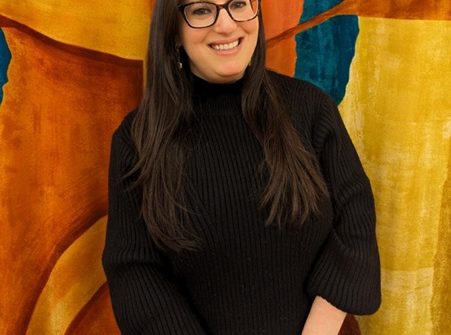In the summer of 2006 I was at a conference in Stockholm, where I had previously studied for a year. After the Shabbat morning service, during Kiddush, one of the wardens, who had known me when I studied there, came over to say hi. He asked after my mum and grandpa who he had given a delightful tour of the old city to some years before, and then he paused. ‘There’s something wrong with you dad’ he said. He had never met my dad and as far as I know there is no way he could have has an idea that there was, indeed, something very wrong. He put his hand to his head and said ‘it’s something here’. We had just been told that dad would be going in for his second operation to remove a brain tumor the day after I would return to London. I asked him how he knew. He said he just sees things. At this point Gary said ‘Shabbat Shalom’ and made a hasty retreat. I spent the next 30 minutes being told extraordinary things about my family, mostly those no longer with us, and it was both astonishing, and hugely comforting. I tried my best not to ask him questions, not wanting to lead him or give him clues to work with, but I did ask him about how he combined his dedication to synagogue life, and his psychic abilities, particularly as we have heard from Torah this morning very clear prohibitions against divination, soothsaying, and talking to ghosts and spirits[1]. He said he had approached the Orthodox Rabbi of Stockholm to ask him about what exactly was forbidden, and the answer had been ‘do not talk to the dead’. The warden was perplexed – ‘what if they keep talking to me?’ he asked.
This encounter while strange, was hugely comforting to my dad in particular, hearing that his own father had been seen safely on the other side. I didn’t realise quite how compelling the encounter had been until about 6 months later when, after a third brain surgery, dad finally succumbed to his brain tumour. Over those first few months, the urge to pop to Sweden and find my psychic friend, to hear one last dad joke, was strong. And it was then I began to truly grasp why Torah, and the rabbis after it, were against us engaging in these practices.
Judaism offers us incredibly well thought out rituals to express our grief and loss, not only when it happens, but throughout the year, gifting us touchstone moments to sit, once again, with our pain. In doing so, I believe, the goal is to encourage us to live really well the rest of the time. As broadcaster Claire Rayner is cited as saying in our funeral book: “Only the unloved and unloving escape grief. It is the price we all have to pay, eventually, for the love that makes our lives worth the living. […] the pain lies in wait for us. And when it comes it has to be experienced before it can be eased”. Life is to be lived, and though there will be losses and pain, Judaism asks us to feel and sit with our grief, in order that we might then get up and live more fully.
The pull to revisit Sweden and connect with my dad in the afterlife was very real. And it helped me realise that it’s not what the Torah wants of us because it wants us to be able to live THIS life as well as we can, and to do so, we need to be here, in the present. We will, please God, have an eternity with our loved ones, trying to make contact while we are still very much here could lead to us forgetting that we still have a life to lead ourselves.
Our portion this week covers a wide range of guidelines for how to live this life well, from good farming practice to honouring the body, fair weights and measures to respect for the elderly. And as is restated anything from 36 to 46 times in the Torah, depending on how you count, we are commanded to love the stranger, and not to wrong them, something our divided society seems to find harder and harder.
Acharei-Mot-Kedoshim sets out for us how to build a holy society, and part of that is the requirement to be present in it. It doesn’t mean we forget our lost loved ones, or aren’t given space and time to process and grieve. But it does mean that in order to really look after one another and the planet, we have to focus on the blessing of this life, and not what lies ahead for us on the other side. So while we miss and remember our loved ones, we honour them by continuing to live well, and working to honour the vision of our Torah portion that we should live in a free, welcoming, fair, and honourable society, where we take care of one another and the planet. This continues the legacy of our loved ones, and hopefully ensures our own.
May we all be blessed with the privilege of loved ones to miss, and a legacy that speaks of the vision of justice and peace for all that the Torah encourages us to live out in this world, and who knows, perhaps in the next.
Shabbat Shalom
[1] Leviticus 19:26 and 19:31



